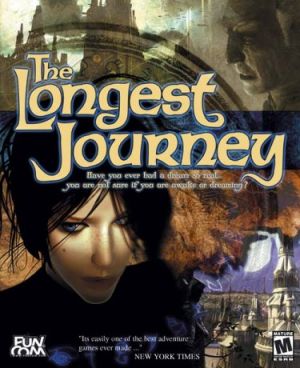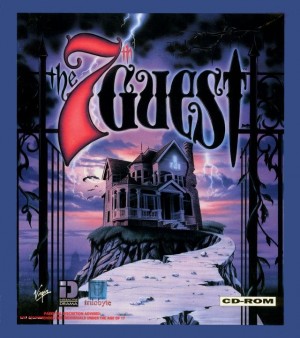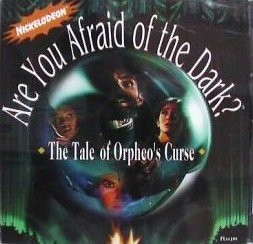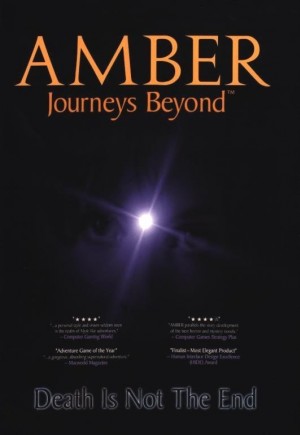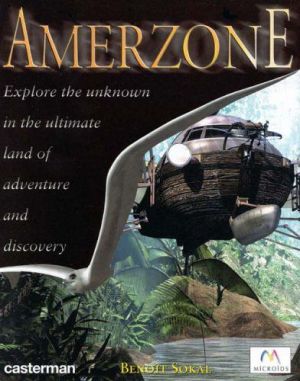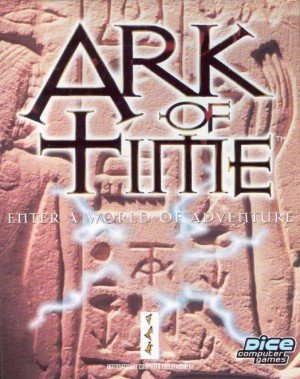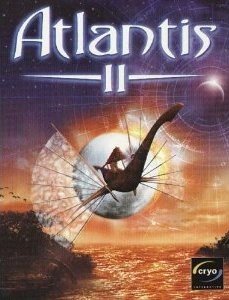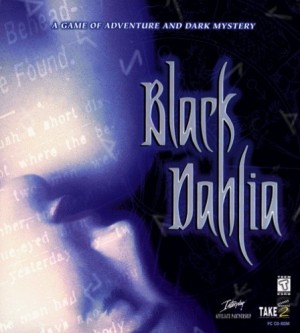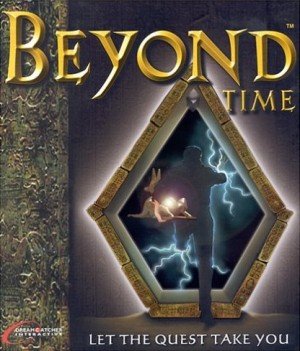Ragnar Tornquist interview
Game design is not a profession that can be learned behind a schooldesk, at least not yet. How did you get drawn into the world of game design?
Probably like most others in this business—through a combination of luck and a passion for games. I started off coding simple games in Basic back in the early 80's, mostly because there weren't a lot of games available for my computer. I also put together a number of text-adventures for the Commodore 64 using a great little tool called The Quill. But I didn't get into the business professionally until 1994, when I applied for a position at Funcom and ended up designing and producing the Casper video-game. The fact that I had a film-school education helped quite a bit, especially in being able to tell a story visually, but the most important aspect of this job is just loving what you do, loving games.
How did you come up with the concept for TLJ? Were you guys just writing down ideas when someone suddenly cried out "Eureka!" ?
If I remember correctly, I think it was "Geronimo!". Okay, that's not really how it happened. The core idea of TLJ—two worlds, one of magic, one of science, and a Guardian to keep watch of the Balance between them—was actually the setting for a platform game (of all things) that Funcom was developing at that time, called Split Realities. I wasn't involved with that project at all, but when for various reasons the game was canned, the lead artist, Didrik Tollefsen, wanted to take the core concept and build a new game around it. Which is where I entered into the picture. We sat down for quite a while, played around with the setting and the characters and the story, and the end result of that process was the beginning of The Longest Journey. There are only little bits and pieces left of the original idea, but that's the nature of any good game design; it grows and changes with the people working on it. At this point, it's difficult to say who came up with what, but it's really been a cooperative process between me and the lead artist, with constant input from the whole team. So, no, it was never "Eureka!" It was more of an organic process.
For a relatively young company like Funcom, an adventure game can be a bit risky sales-wise. What made you decide to make one?
Good question! I'm sure a lot of people are thinking the same thing. I mean, what were we thinking? Seriously, though, adventure games have only recently been falling out of favour, if that's the right word. In 1996, when we started production on The Longest Journey, adventures were still going... if not strong, then at least "going". In fact, in 1996, role-playing games were just about dead, and nobody in their right mind had an RPG on their production slate. Except for the few visionary developers who thought that the genre might be revived if only somebody decided to release a good RPG. Risky, perhaps, but like RPGs, I definitely think that the adventure genre has a good shot at making it back into favour—it all depends on the games. There's always an audience for good games, no matter the genre.
What do you most like playing when you're not working on The Longest Journey?
It's that "when you're not working on The Longest Journey" bit that confuses me. There's no unit of time short enough to describe those moments ![]() I do try to play as many games as possible, usually during the time when I should be sound asleep. I make a point of playing as many adventures as possible, though that's like saying I also try to keep track of all the snowflakes in hell. Other than that, I'm a sucker for RPGs, and first-person shooters, and I think that Half-Life is probably one of the best games ever made. Recently, I've been playing System Shock 2 quite a bit, and I'm anxiously awaiting the arrival of the Dreamcast to feed my craving for fighting- and racing-games. Oh, and Civilization II is without doubt the best game ever made. Either that or Day of the Tentacle. I'm never quite sure.
I do try to play as many games as possible, usually during the time when I should be sound asleep. I make a point of playing as many adventures as possible, though that's like saying I also try to keep track of all the snowflakes in hell. Other than that, I'm a sucker for RPGs, and first-person shooters, and I think that Half-Life is probably one of the best games ever made. Recently, I've been playing System Shock 2 quite a bit, and I'm anxiously awaiting the arrival of the Dreamcast to feed my craving for fighting- and racing-games. Oh, and Civilization II is without doubt the best game ever made. Either that or Day of the Tentacle. I'm never quite sure.
The name LucasArts pops up here and there in your descriptions of TLJ. Are their games an example to you?
Yes. ![]()
I'm just a big fan of all things LucasArts. I remember playing Monkey Island to death on my trusty old Amiga, and before that Maniac Mansion with a monochrome Hercules card on an XT. Day of the Tentacle is simply the most brilliant adventure ever made, and I don't think anything will ever surpass it in pure ingenuity of design. So, sure, they were a big influence when we started working on The Longest Journey. But we never tried to emulate them, because we'd only end up looking like a horse's rear end. The Longest Journey is, at heart, a very serious game, and though it's humoristic in parts, I don't think anyone can accuse it of being too LucasArts-y. Aside from the interface, which is, uh, inspired in parts by some of their games. But that's only natural; why fix what ain't broken?
What's the one thing in The Longest Journey you're most proud of?
You mean which part of my baby do I love the most? Boy, that's a difficult question. For my own part, I'd have to say the characters and the puzzles, 'cause that's been my thing from the very beginning. But looking at the game, the thing that keeps bowling me over is the graphics—we've had some amazingly talented people working on this project for a long, long time, and they deserve all the credit they're gonna get...because it simply looks stunning. To give you an idea of the calibre of talent we have working on the graphics, we just got a new team-member whose last credit was Star Wars Episode I: The Phantom Menace--the movie, that is, not the game!
You've previously said that the game contains three worlds. We know of Stark and Arcadia, but what's the third?
Like I'm gonna tell you? Secrets are the foundation of any good story. And this is one of them. You won't find out until you've played the game through to the end, and that may take a while!
Please choose. The adventure genre is: dead / alive / asleep / handicapped.
Handicapped. Not too much has happened with the genre since the early 90's, and whatever Myst did, it didn't help the traditional adventure game much at all. A large number of average and downright crappy games flooded the shelves, and people got tired of the genre. So what we need is a couple of big hits—like The Longest Journey, hopefully, and Gabriel Knight 3—coupled with a willingness on the part of the developer community to explore new avenues within the framework of the genre.
Do you think the small touches of humor (April's occasional sarcastic remarks and the many inside jokes) will work well within the serious story?
A serious story needs humour to be a good story. The more serious it is, the funnier it needs to be. That's a dichotomy, true, but a necessary one. Nobody likes to be serious all the time. So we've injected a lot of humour into TLJ, to loosen it up between the "heavy" bits. Besides, we're trying to entertain people, not depress them! As you get further into the story, though, there are definitely fewer jokes.
The marketing departement has intentionally kept things a bit quiet around the game. Will we see The Longest Journey properly featured in mainstream gaming press any time soon?
Yes. With the release on the imminent horizon, there will certainly be more coverage. In territories like France, where UbiSoft is publishing the game, the Benelux countries, and Scandinavia, they're gearing up for big advertising and press coverage in the very near future. As for the rest of the world? It'll happen. Soon.
Looking beyond TLJ, do you think there is potential for a sequel, or perhaps a new Funcom adventure?
The storylines for possible sequels exist. It's really just a question of how well the game sells. As for future adventures? Personally, I'd say yes, but not in the traditional sense. I've got something really exciting in mind, but it's too early to say anything about it. It's definitely an adventure, though. Well, kinda. ![]()
How much of the game is completed at the moment. When will the journey end for you and begin for us?
We're about 95% done. Bug-fixing and cleaning up stuff we're not happy with, like bits of graphics here and there, and some animations and sound effects, is what occupies the bulk of our long days and weekends. The game-testers are working mucho overtime to locate all the bugs—in a game this size, there are literally thousands of them—and the team is working similar hours to clean them all up. But we're close. Very close. It's difficult to make any promises seeing as we've still to secure a publisher for North America, but in Europe at least the game will probably appear on shelves during November or December, depending on the territory and the language.
What's you dream for the future?
Peace on Earth, a manned mission to Mars, and a new Monkey Island game! Aside from that? Hmmm, I'd love for The Longest Journey to sell over a million copies, become a worldwide phenomena, and spawn lots of sequels and fluffy toys.
More realistically, however, I want to start working on my next game. It's a really interesting concept that's been brewing in my head for six months now, but I haven't had much time to really sit down and focus on it. I look forward to doing that.
Is there anything else you would like to say, that we didn't cover in our questions?
Thanks a bunch to you and the other adventure-gaming sites for keeping the torches burning! The genre isn't dead, it's just dormant, and its influence is very visible in games like Half-Life, System Shock 2, and Tomb Raider, where story, characters and puzzles are all used to create complex and interesting worlds—exactly what adventure-games are all about. This doesn't mean that there won't be any more old-school, traditional point-and-click adventures, however. I really think The Longest Journey (and, of course, Gabriel Knight 3) is just a harbinger of things to come, and that a new generation of gamers will wake up and smell the coffee.
It's a nice thought, anyway ![]()



